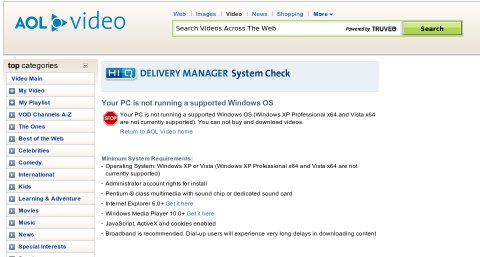OT: missing the point
By joe
- 2 minutes read - 410 wordsI use Linux on my laptop. Have for years. Use lots of business tools there. Browse web pages with firefox, get email with thunderbird. Create, modify, finalize, present “office” documents (Excel spreadsheets, powerpoint presentations, Word documents). Watch video clips (legal), DVDs (legal), etc. It makes for a great platform for these things. Stable, fast, virus free.
One of my big complaints about dealing with web pages has been the propensity to code to IE-whatever. If authors coded to actual standards rather than IE, then everyone would have a fighting chance at seeing content. Notice that google, youtube, and many other services have no difficulty delivering valuable content over standards compliant web interfaces. The problem is that when you code to IE and not the standard, is that you force users to use IE. Which on Linux is a little harder to use, though not impossible. But that misses the point. Will get to the point in a minute. One of my big complaints about dealing with video/audio formats are not the closed source nature of the codecs, but the limited platform release of them. Again, similar preferred platforms. End users want to see, hear, read things. They don’t want barriers erected to this. Pages like this:
do very little to convince me that the content provider wants me to consume their product as much as erect barriers to consuming their product. This is what I got when I received a link from a friend who wanted to point me to the video. It didn’t work. It won’t work. The content provider doesn’t actually want me to view their content. This is the point. If you make it easy and standards compliant, there is a pretty good possibility that your customers won’t have problems. You will not have erected barriers, and your accessible market will be larger. Flip this around. Erect barriers with non-standards compliant IE and other “requirements”. You will make it harder for people without the approved target platform to run/use your application. This means your addressable market is smaller. If you are AOL, you really, really don’t want to force your market to shrink any more than it has already. Products that are not available across platforms won’t be consumed. The web democratizes. Standards democratize. Platform barriers atop this democratic landscape destroy that democratization. Creates a balkanization of the web. It should be obvious that this is not a good thing. Lets hope AOL and others reconsider this.
